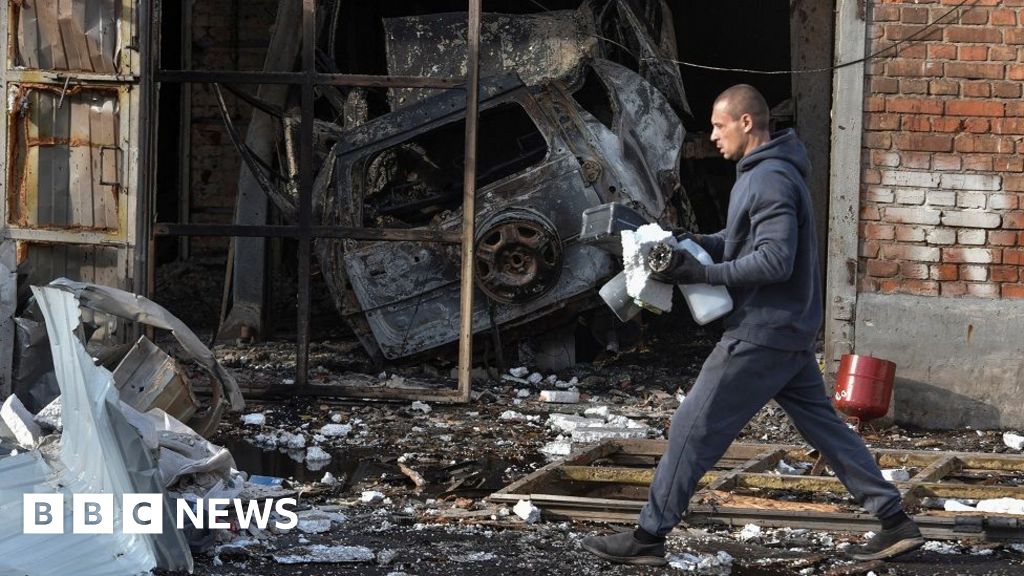US Military Team Visits Kyiv Amidst EU Warnings & Trump-Backed Peace Plan Rumors
 Ukraine
International Relations
Ukraine
International Relations

US military officials visited Kyiv to discuss ending the war. This comes amid reports of a US-Russia peace plan requiring Ukrainian concessions, sparking EU and
US Military Delegation Arrives in Kyiv Amidst Peace Plan Speculation
A high-level US military delegation has arrived in Kyiv, marking the most senior visit since President Trump took office. This visit occurs amidst heightened diplomatic activity and growing concerns from European allies regarding potential peace proposals aimed at ending the ongoing conflict with Russia.
Fact-Finding Mission and Diplomatic Overtures
Led by US Army Secretary Dan Driscoll, the team's stated mission is a “fact-finding” endeavor. Their objective is to assess the current on-ground situation in Ukraine and explore various pathways to achieving an end to the war with Russia. The delegation's presence underscores the US administration's engagement, even as its approach draws scrutiny.
The timing of this visit is particularly significant, coinciding with emerging reports of a US-backed peace framework. Developed by the Trump administration, this plan reportedly aims to de-escalate the conflict. White House officials have indicated President Trump's “frustration” with both Russia and Ukraine for their perceived reluctance to commit to a peace agreement. Consequently, his team has been working on a “detailed and acceptable” plan.
Special envoy Steve Witkoff is reportedly spearheading these quiet diplomatic efforts, having engaged both Ukrainian and Russian representatives to gauge acceptable terms for a potential ceasefire. A senior US official emphasized that any viable peace plan would necessitate concessions from both sides, not solely Ukraine, hinting at the complexity of the negotiations.
Controversial Peace Plan Details and Ukrainian Resistance
Details surfacing from sources like Axios, the Financial Times, and Reuters describe a draft 28-point plan that could demand significant sacrifices from Kyiv. These proposed terms include:
- Relinquishing control over parts of the Donbas region in eastern Ukraine.
- Substantially reducing the size of Ukraine's armed forces.
- Foregoing many of its current weapon systems.
Such stringent conditions have understandably raised alarm, especially given that Ukrainian President Volodymyr Zelensky has consistently and unequivocally rejected any territorial concessions to Russia.
EU and Ukrainian Concerns Mount
The apparent exclusion of EU and Ukrainian officials from the drafting process of this proposal has further fueled anxieties. Many fear the plan might disproportionately favor Moscow, potentially undermining Ukraine's sovereignty and long-term security. EU foreign policy chief Kaja Kallas stressed the critical importance of involving Ukrainian and European allies for any peace initiative to succeed and be legitimate. French Foreign Minister Jean-Noël Barrot echoed this sentiment, stating firmly that “the Ukrainians do not want any form of capitulation.”
During her meeting with the US delegation, Ukrainian Prime Minister Yulia Svyrydenko notably avoided direct comment on the rumored peace plan. Instead, she highlighted the visit as a crucial opportunity for American officials to observe the consequences of Russian aggression
firsthand. The US delegation, which also includes Gen Randy George, top US army commander in Europe Gen Chris Donahue, and Sergeant Major of the Army Michael Weimer, focused on the immediate military situation and the potential for a ceasefire, as confirmed by an unnamed Ukrainian official. Ukrainian Defence Minister Denys Shmyhal further posted on X about “historic defence agreements” reached with the US, indicating a focus on practical cooperation.
Conflict Continues Amidst Diplomacy
These intricate diplomatic maneuvers unfold against a grim backdrop of intensified Russian attacks. Shortly before the delegation's arrival, a devastating missile and drone strike on Ternopil, a city in western Ukraine, tragically killed at least 26 people, with 22 others reported missing. President Zelensky was abroad during this attack, and unconfirmed reports suggested planned talks with Trump's envoy in Ankara were subsequently called off, potentially due to the escalation.
Russia, for its part, has maintained a somewhat ambiguous stance, neither confirming nor denying the existence of a specific peace plan. However, Kremlin spokesman Dmitry Peskov acknowledged “contacts” with the US, while simultaneously ruling out formal “consultations or negotiations.” Russian Foreign Minister Sergei Lavrov reiterated Moscow's long-standing preconditions for peace, which align with the extensive concessions reportedly sought from Ukraine, reaffirming President Vladimir Putin's demands first laid out in 2024.
Adding another layer to the diplomatic landscape, special envoy to Ukraine Keith Kellogg is slated to depart his role in January. Kellogg has been recognized as a consistent advocate for Ukraine within the White House, a notable position given President Trump's occasional tendencies to align with Russia on aspects of the conflict. As Ukraine continues its tenacious fight through another challenging winter, it navigates a complex environment of both relentless military conflict and high-stakes international diplomacy.